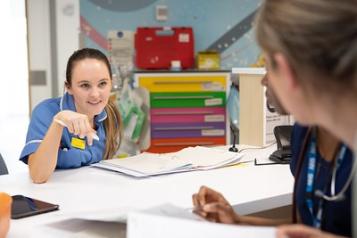Foetal Alcohol Spectrum Disorder (FASD)

Drinking in pregnancy
Drinking alcohol at any stage of pregnancy can harm a baby’s development. Alcohol passes through the placenta, exposing the baby to the same levels as the mother. Because a baby’s liver is not fully formed, it cannot process alcohol, leading to lifelong effects.
The safest choice is no alcohol at all.
Although there is very little up to date, accurate data on the number of alcohol-exposed pregnancies in the UK, studies have shown that:
- 40% of women continue drinking during pregnancy
- The UK had the 4th highest rate of drinking during pregnancy in the world
Drinking when planning a pregnancy also makes it harder to conceive and increases the risk of miscarriage and premature birth.
What is FASD?
FASD is a spectrum and each person with FASD is affected differently. FASD is often misunderstood or misdiagnosed. Many people with FASD never receive a formal diagnosis, meaning they do not get the support they need. FASD is often called a hidden disability because most people with it do not have visible signs.
People with FASD may struggle with:
- Learning new things
- Memory and attention
- Controlling emotions and behaviour
- Understanding consequences
- Sensory issues (noise, lights, touch)
Every individual with FASD is different:
- Some may have mild difficulties, while others need lifelong support.
- Some may struggle with memory and attention, while others may have difficulty regulating emotions or motor skills.
I am the same as everyone I just process differently. I can learn with the right help
FASD is a lifelong condition. The challenges don’t disappear with age, and many people with FASD need ongoing support throughout their lives. But the right help at the right time can make a big difference. With early diagnosis and the right strategies, children can learn to manage their difficulties, gain independence, and build a brighter future.
How common is FASD?
FASD is likely more common than many people realise, but challenges in diagnosis and data collection make it hard to know exactly how many people are affected and difficult to plan services and support for those who need them.
Currently, there has only been one, gold-standard official study into to how common FASD is in England which was started in 2019 by the University of Salford. Their results showed that 1.8 - 3.6% may have FASD but unfortunately the study was cut short due to COVID and only ended up covering 3 primary schools in Greater Manchester.
However, general estimates suggest:
- 3-5% of people in the UK may have FASD – making it more common than autism or ADHD.
- Less than 10% of people with FASD have distinct facial features, but most do not.
One of the biggest barriers to diagnosis is that many doctors are not trained to recognise FASD. This means that people with FASD often go undiagnosed or misdiagnosed, leading to inadequate support.
FASD diagnosis and misdiagnosis
How is FASD diagnosed?
There is no single test for FASD. Instead, doctors look at:
- Evidence of prenatal alcohol exposure (if available)
- Cognitive and behavioural difficulties, including memory, learning, and impulse control.
- Physical signs (in some cases).
Key Facial Features (Seen in Less Than 10% of Cases)
- Thin upper lip
- Smooth philtrum (the area between the nose and upper lip)
- Short palpebral fissures (smaller eye openings)
When these features are present, doctors may diagnose FASD even without proof of alcohol use in pregnancy.
Importantly, because FASD shares many symptoms with other conditions, it is often misdiagnosed. Many people are wrongly told they have ADHD or autism because they also struggle with attention, social skills, and behaviour. But FASD is different, and getting the wrong diagnosis can mean missing out on the right support.
Why does misdiagnosis matter?
- 80% of people diagnosed with FASD were previously misdiagnosed with another condition. This means they may not have received the right support for their needs.
- FASD is often missed because doctors don’t always ask about alcohol exposure during pregnancy
- FASD is different from ADHD and autism—individuals with FASD respond differently to medication, meaning treatments designed for other conditions may not work.
- More awareness and knowledge are needed to prevent misdiagnosis and ensure people with FASD get the right support.
Initial GP told me that FASD couldn't be diagnosed after birth and that it was probably just mild autism that we wouldn't get any support for...
Getting a diagnosis in South Yorkshire
In South Yorkshire, FASD diagnosis can be difficult due to a lack of specialist services.
If you think your child may have FASD, speak to your GP or health visitor. They may refer you to:
- Paediatricians (specialists in child development)
- Psychologists (to assess learning and behaviour)
- Speech and language therapists (to check communication issues)
Doctors look for:
✔ Proof of alcohol exposure during pregnancy
✔ Challenges in thinking, learning, and behaviour
A 2 year multi-agency project was started by One Adoption Agency in South Yorkshire in 2023 to develop and implement an FASD pathway supporting Adopted Children with FASD. The project has looked at how to implement the NICE quality guidelines for FASD particularly around raising awareness and prevention, intervention and support and assessment and diagnosis.
More information and support
National FASD - a great place to learn more about FASD.
FASD UK Facebook group - a closed Facebook support group for those with FASD and their families.
FASD UK Alliance - positive support groups for those with FASD, their friends and families and others connected with raising the awareness of FASD.
The FASD UK Resources YouTube channel - highlights a wide range of fantastic FASD resources available on YouTube. The channel includes a range of playlists on related topics.
Me & My FASD - This website is packed full of ideas to help those with FASD understand their diagnosis. It’s written with advice from adults and young people in the UK who have FASD and a whole team of experts and families.
FASD Network UK - an organisation which specialises in providing information, support and training on FASD, covering the North East, Yorkshire, Hull and East Riding areas.
Rotherham Local SEND Offer - this provides a list of the local SEND support and resources available. Many groups exist to support those with neurodevelopmental conditions and other related conditions.
Alcohol Change UK - for help and support if you are worried about your own or someone else's drinking.
Drinkaware - has a free, national alcohol helpline if you're worried about your own or someone else's drinking. Call 0300 123 1100 (weekdays 9am-8pm, weekends 11am-4pm)
Alcoholics Anonymous (AA) - a free self help support group to help people get sober.
Drinking alcohol while pregnant - advice from the NHS.

